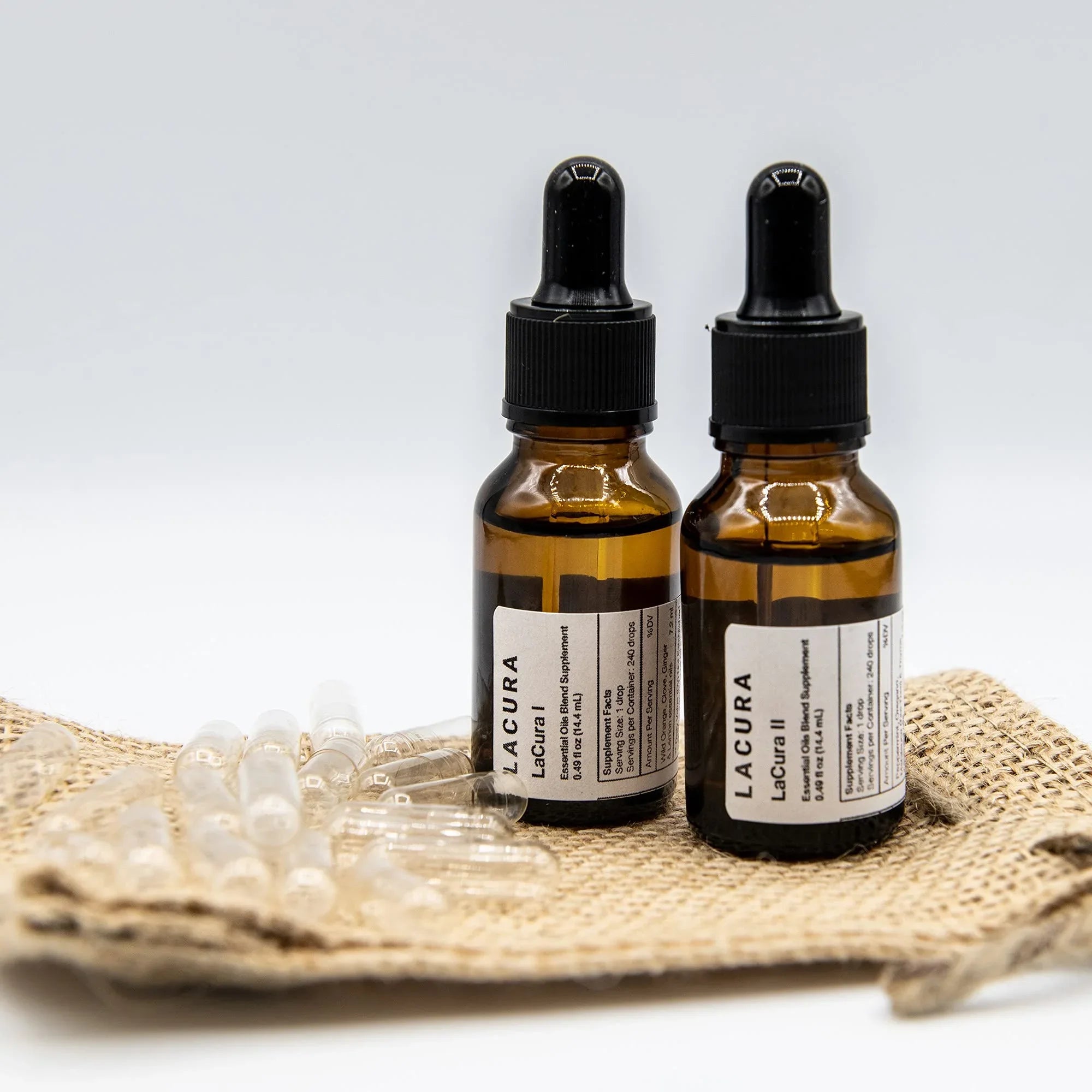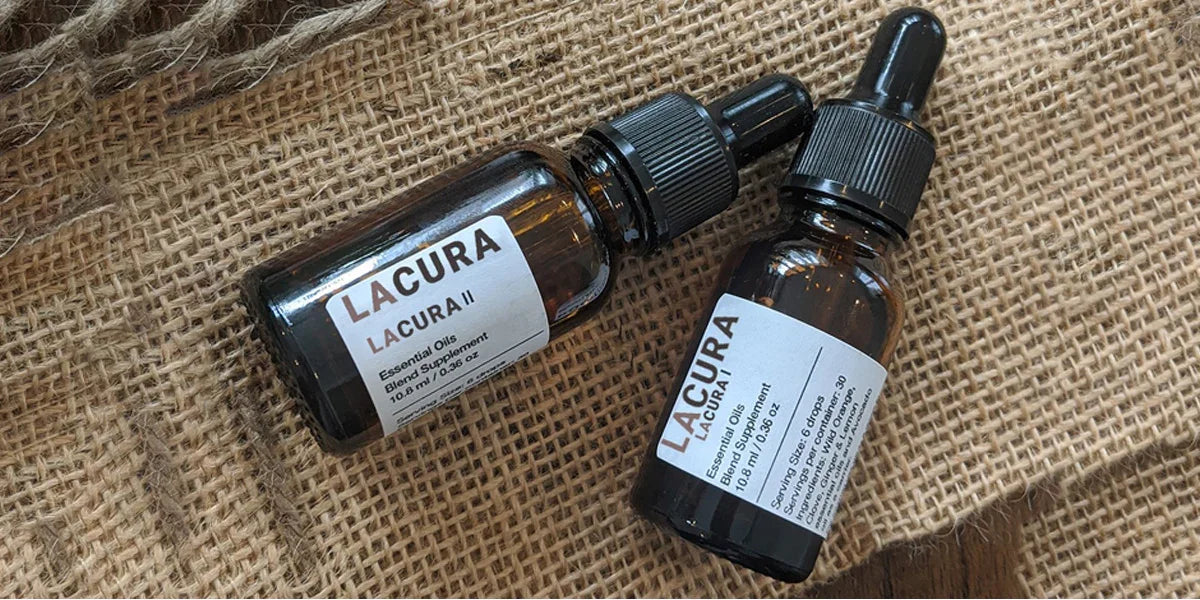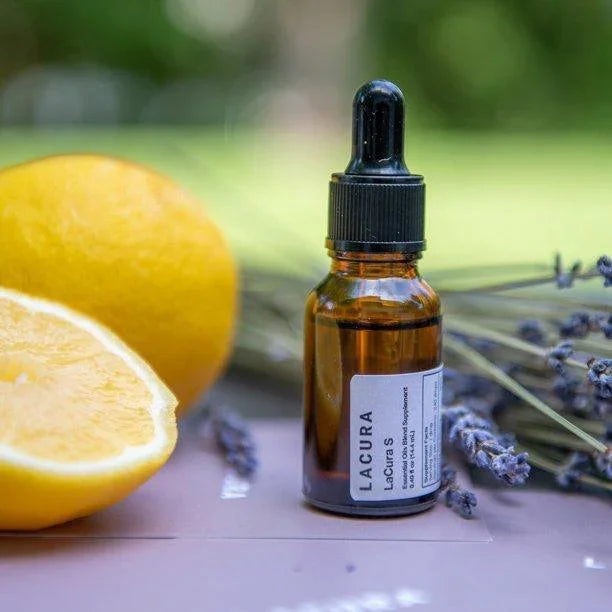In a world where one in five adults experience mental health issues each year, a growing body of research suggests that one of the most potent remedies may be right under our noses: gratitude. This simple yet powerful practice of acknowledging and appreciating the good in our lives has emerged as a promising natural approach to alleviating anxiety and depression. While traditional treatments like therapy and medication remain essential for many individuals, incorporating gratitude into our daily lives can profoundly impact our mental well-being.
In this article, we'll explore the science behind gratitude's effects on the brain, its key benefits for mental health, and practical strategies for cultivating a grateful mindset amidst life's challenges. Join us as we uncover the transformative potential of gratitude as a natural remedy for anxiety and depression.
Understanding Anxiety and Depression
Anxiety and depression are two of the most common mental health disorders, affecting millions worldwide. Anxiety is characterized by excessive worry, restlessness, and physical symptoms like rapid heartbeat and sweating. Depression, on the other hand, involves persistent feelings of sadness, hopelessness, and a loss of interest in activities once enjoyed.
These conditions can significantly impact an individual's quality of life, interfering with daily functioning, relationships, and overall well-being. Traditional treatment approaches often include therapy, such as cognitive-behavioral therapy (CBT), and medication like antidepressants. While these interventions can be effective, they also have limitations. Therapy may be time-consuming and costly, while medications can cause side effects and may not work for everyone.
In recent years, there has been a growing interest in holistic approaches to mental health, including mindfulness and gratitude practices. These strategies focus on nurturing a positive mindset and developing emotional resilience, offering a complementary approach to traditional treatments.
The Science of Gratitude
What is gratitude?
Gratitude is the act of recognizing and appreciating the good things in life, whether they be big or small. It involves acknowledging the positive aspects of our experiences, relationships, and ourselves. Psychologically, gratitude is a positive emotion that arises when we perceive that we have received a benefit from an external source.
Practicing gratitude can take many forms, such as writing in a gratitude journal, expressing appreciation to others, or simply taking a moment to reflect on the things we're thankful for.
Gratitude and the Brain
Research has shown that gratitude has a profound impact on our brain chemistry. When we experience gratitude, our brain releases neurotransmitters like dopamine and serotonin, which are associated with feelings of happiness and well-being. These chemicals play a crucial role in regulating our mood and emotional responses.
Studies using brain imaging techniques have revealed that practicing gratitude activates regions of the brain involved in emotional processing, such as the limbic system and the prefrontal cortex. This activity suggests that gratitude can help modulate our emotional responses and promote more positive thinking patterns.
Moreover, regular gratitude practice has been linked to reduced stress levels and improved mood. When we focus on the positive aspects of our lives, we're less likely to dwell on negative thoughts and experiences, which can contribute to anxiety and depression.
Facts About Gratitude:
- People who regularly practice gratitude report higher levels of positive emotions, life satisfaction, and resilience.
- Gratitude has been shown to improve sleep quality, with grateful individuals experiencing more restful and refreshing sleep.
- Expressing gratitude to others can strengthen social bonds and increase feelings of connectedness and support.
- Gratitude can boost the immune system by reducing stress and inflammation in the body.
- Regular gratitude practice has been associated with reduced symptoms of anxiety and depression.
Key Benefits of Practicing Gratitude
Mental Health Benefits
Practicing gratitude can have a profound impact on our mental well-being. Here are some key benefits:
- Stress reduction: Focusing on the positive aspects of life can help put stressful situations into perspective, reducing their emotional impact. Gratitude helps shift our attention away from negative thoughts and worries, promoting a more balanced outlook.
- Improved emotional regulation: Gratitude encourages the development of positive emotions, which can help counteract the negative feelings associated with anxiety and depression. By regularly engaging in gratitude practices, we can train our brains to respond more adaptively to challenging situations.
- Enhanced resilience: Cultivating gratitude can help us build emotional resilience, enabling us to bounce back more easily from setbacks and adversity. When we appreciate the good in our lives, we're better equipped to weather difficult times and maintain a sense of hope and perspective.
Physical Health Benefits
In addition to its mental health benefits, gratitude can also positively impact our physical well-being:
- Better sleep quality: Focusing on positive thoughts and experiences before bed can help calm the mind and promote more restful sleep. Studies have shown that grateful individuals tend to fall asleep more easily and experience fewer sleep disturbances.
- Reduced inflammation: Chronic stress and negative emotions can contribute to inflammation in the body, which is linked to various health problems. Gratitude has been shown to reduce inflammation markers, suggesting that it may help protect against stress-related illnesses.
- Improved immune function: Gratitude can boost the immune system by reducing stress hormones like cortisol, which can suppress immune function when chronically elevated. Regular gratitude practice may help strengthen the body's natural defenses against illness.
Social Benefits
Gratitude also plays a crucial role in fostering positive social connections:
- Stronger relationships: Expressing gratitude to others can deepen our bonds and make us feel more connected and supported. When we appreciate the people in our lives, we're more likely to invest in and nurture those relationships.
- Increased empathy: Practicing gratitude can help us develop greater empathy and understanding for others. By recognizing the good in our own lives, we become more attuned to the experiences and needs of those around us.
- Better communication: Gratitude promotes positive communication and can help diffuse conflicts. When we approach interactions with a grateful mindset, we're more likely to express ourselves constructively and listen to others with an open heart.
How Gratitude Helps Manage Anxiety and Depression
Gratitude is a powerful tool for managing anxiety and depression, offering a natural way to shift our focus and cultivate a more positive outlook. Let's explore how gratitude can help alleviate these mental health challenges.
Shifting Focus
One of the key ways gratitude combats anxiety and depression is by helping us reframe negative thought patterns. When we're struggling with mental health issues, our minds often become fixated on negative experiences and worries. Gratitude encourages us to redirect our attention to the positive aspects of our lives, no matter how small they may seem. By actively seeking out things to be thankful for, we train our brains to notice and appreciate the good, reducing the power of negative rumination.
Fostering Optimism
Focusing on the positive aspects of life can foster a sense of hope and optimism, even in the face of challenges. When we practice gratitude, we recognize that there are still good things in our lives, despite our struggles. This realization can help combat feelings of helplessness and despair often associated with depression.
Reducing Stress Hormones
Gratitude has a direct impact on our physiological stress response. When we experience feelings of appreciation and thankfulness, our bodies release oxytocin, a hormone associated with bonding and stress relief. At the same time, gratitude practice can help lower levels of cortisol, the primary stress hormone. By reducing stress hormones, gratitude can help alleviate the physical symptoms of anxiety and promote a greater sense of calm and well-being.
Improving Relationships
Strong social connections are a crucial factor in maintaining mental health. Gratitude can help strengthen our relationships by fostering a sense of appreciation for the people in our lives. When we express gratitude to others, we deepen our bonds and feel more connected and supported. These positive social interactions can provide a powerful buffer against the negative effects of anxiety and depression.
The Science Behind Gratitude's Benefits
The transformative power of gratitude in managing anxiety and depression is supported by a growing body of scientific research. Here are some key findings that shed light on the mechanisms behind gratitude's mental health benefits:
Research Studies and Findings
Numerous studies have demonstrated the positive impact of gratitude on mental well-being. For example, a 2015 study published in the Journal of Positive Psychology found that participants who wrote gratitude letters reported significantly better mental health than those who didn't. Another study published in the Journal of Happiness Studies showed that daily gratitude practices led to increased optimism, life satisfaction, and positive affect.
Brain Imaging Evidence
Brain imaging studies have provided further insight into how gratitude affects the brain. A 2016 study using functional magnetic resonance imaging (fMRI) found that expressing gratitude activated regions of the brain associated with reward, social bonding, and positive valuation. These findings suggest that gratitude can stimulate the brain's reward pathways, promoting feelings of happiness and well-being.
Psychological Mechanisms
Gratitude's mental health benefits can be attributed to several psychological mechanisms. Firstly, gratitude helps shift our attention away from negative stimuli and towards positive experiences, reducing the impact of negative thought patterns. Secondly, gratitude promotes the savoring of positive emotions, allowing us to fully experience and appreciate the good in our lives. Lastly, gratitude fosters a sense of connectedness and social support, which are essential for maintaining mental well-being.
Physiological Changes
Practicing gratitude can lead to measurable changes in our physiology. Studies have shown that gratitude can lower blood pressure, improve heart rate variability (a marker of stress resilience), and strengthen the immune system. These physiological changes can contribute to overall better health and well-being, which in turn can help alleviate symptoms of anxiety and depression.
How to Practice Gratitude
Incorporating gratitude into your daily life is a simple yet powerful way to promote mental well-being. Here are some practical strategies for cultivating a grateful mindset:
Gratitude Journaling
One of the most effective ways to practice gratitude is through journaling. Set aside a few minutes each day to write down three to five things you're grateful for. These can be big or small, from a beautiful sunset to a kind gesture from a friend. Focusing on the positive aspects of your day can help shift your mindset and promote feelings of appreciation. Over time, gratitude journaling can rewire your brain to naturally seek out and savor the good in your life.
Daily Affirmations
Another way to incorporate gratitude into your daily routine is through affirmations. Start each morning by stating a few things you're grateful for, such as "I am grateful for my health," or "I am thankful for the love and support of my family." You can also end your day with gratitude affirmations, reflecting on the positive experiences and interactions you had throughout the day. Repeating these affirmations can help reinforce a grateful mindset and promote positive self-talk.
Gratitude Letters
Writing letters of appreciation to the people in your life can be a powerful way to cultivate gratitude and strengthen your relationships. Take some time to think about someone who has made a positive impact on your life, whether it's a family member, friend, or mentor. Write a heartfelt letter expressing your gratitude for their presence and support. You can choose to send the letter or simply use the writing process as a way to reflect on your appreciation. This practice can deepen your sense of connection and remind you of the goodness in your life.
Mindful Gratitude Practices
Incorporating gratitude into your mindfulness practice can enhance its mental health benefits. During meditation or quiet moments, take a few minutes to focus on the things you're grateful for. You can visualize these blessings, feel the positive emotions they evoke, and silently express your appreciation. This practice can help anchor you in the present moment and cultivate a sense of peace and contentment. Mindful gratitude can be especially helpful during times of stress or anxiety, providing a grounding and uplifting focal point.
Overcoming Challenges in Practicing Gratitude
While the benefits of gratitude are clear, putting it into practice can be challenging, especially when dealing with mental health struggles. Here are some common barriers and practical solutions for overcoming them:
Barriers to Gratitude
One of the biggest challenges in practicing gratitude is the feeling that there's nothing to be grateful for, especially during difficult times. Anxiety and depression can make it hard to see the positive aspects of life, as negative thoughts and emotions can overshadow moments of joy or contentment. Additionally, some people may feel that expressing gratitude is insincere or forced, particularly if they're not used to focusing on the good in their lives.
Practical Solutions
To overcome these barriers, it's essential to start small and be patient with yourself. Rather than trying to force feelings of gratitude, begin by simply noticing small moments of beauty, kindness, or comfort in your day. These can be as simple as a warm cup of coffee, a friendly smile from a stranger, or a few minutes of quiet time to yourself.
Another helpful strategy is to reframe your perspective on gratitude. Instead of seeing it as an obligation or a chore, approach it as an opportunity to cultivate a more positive outlook. Remind yourself that practicing gratitude is a skill that develops over time, and it's okay if it feels challenging at first.
Finally, be kind to yourself and acknowledge that setbacks are a normal part of the process. If you miss a day of gratitude practice or struggle to find things to appreciate, don't beat yourself up. Simply return to your practice when you're ready and keep moving forward.
Resources and Further Support
If you're interested in learning more about gratitude and its mental health benefits, there are many resources available to support your journey:
Recommended books and articles
- "The Little Book of Gratitude" by Robert Emmons - This concise guide offers practical tips and exercises for cultivating gratitude in daily life.
- "Thanks!: How the New Science of Gratitude Can Make You Happier" by Robert Emmons - A comprehensive exploration of the science behind gratitude and its impact on well-being.
Professional Resources
If you're struggling with anxiety or depression, it's essential to seek professional support. Therapy can provide a safe space to explore your challenges and develop coping strategies, including gratitude practices. Some resources for finding mental health professionals include:
- Psychology Today's Therapist Directory - A searchable database of mental health professionals in your area.
- National Alliance on Mental Illness (NAMI) - Offers support, resources, and referrals for individuals and families affected by mental illness.
- Online therapy platforms like BetterHelp or Talkspace - Provide access to licensed therapists through secure video, phone, or text-based sessions.
Use Quality Wellness Products
Incorporating natural wellness products into your self-care routine can support your mental health journey. LaCura offers a range of certified essential oils that can help promote relaxation, reduce stress, and uplift your mood. Aromatherapy can be a powerful complement to gratitude practices, helping to create a calming and grounding environment for self-reflection.
Some essential oils known for their stress-relieving properties include lavender, bergamot, and ylang-ylang. By using high-quality, organic essential oils from LaCura, you can harness the power of nature to support your well-being and enhance the benefits of your gratitude practice.
Frequently Asked Questions
Can gratitude and anxiety exist at the same time?
Yes, it's possible to experience feelings of gratitude even while struggling with anxiety. Gratitude is not about denying or minimizing the challenges you face, but rather about shifting your focus to the positive aspects of life that coexist with the difficulties. Practicing gratitude can help alleviate anxiety symptoms over time by promoting a more balanced perspective.
How can I be more grateful?
Becoming more grateful is a skill that can be developed through regular practice. Some strategies include keeping a gratitude journal, expressing appreciation to others, and taking time to savor positive experiences. Start small and be patient with yourself as you cultivate a more grateful mindset.
How does gratitude change you and your brain?
Practicing gratitude can rewire your brain to focus more on positive experiences, which can lead to increased feelings of happiness and well-being. Gratitude activates regions of the brain associated with emotional processing and reward, promoting the release of feel-good neurotransmitters like dopamine and serotonin.
How does anxiety affect neuron function?
Anxiety can disrupt the balance of neurotransmitters in the brain, particularly those involved in regulating mood and stress responses. Chronic anxiety can lead to changes in brain structure and function, such as increased activity in the amygdala (the brain's fear center) and reduced activity in the prefrontal cortex (involved in emotional regulation and decision-making).
What part of the brain controls gratitude?
Several brain regions are involved in the experience and expression of gratitude, including the prefrontal cortex, anterior cingulate cortex, and limbic system. These areas are associated with emotional processing, social cognition, and reward-related learning.
Are grateful and thankful the same?
While often used interchangeably, "grateful" and "thankful" have slight differences in meaning. Gratitude involves a deeper sense of appreciation and recognition of the value of what one has received, while thankfulness is a more general expression of appreciation or acknowledgment. However, both terms represent positive emotions and can be used to express appreciation.
Conclusion
In a world where anxiety and depression are all too common, gratitude emerges as a powerful, natural remedy for promoting mental well-being. By shifting our focus to the positive aspects of life and cultivating a mindset of appreciation, we can rewire our brains to be more resilient, optimistic, and connected.
The science behind gratitude reveals its transformative effects on our mental, physical, and social well-being. From reducing stress and inflammation to strengthening relationships and boosting happiness, the benefits of gratitude are far-reaching and profound.
By incorporating simple practices like gratitude journaling, daily affirmations, and mindful appreciation into our lives, we can harness the power of gratitude to alleviate symptoms of anxiety and depression. While challenges may arise, starting small and being patient with ourselves can help overcome barriers and establish a lasting gratitude practice.
As we navigate the journey towards better mental health, it's essential to remember that gratitude is not a panacea but rather a complementary approach to traditional treatments. Seeking professional support and utilizing quality wellness products, such as LaCura's essential oils, can further enhance the benefits of gratitude and support our overall well-being.
So, take a moment to reflect on the good in your life, no matter how small or fleeting it may seem. Begin your gratitude journey today, and witness the transformative power of appreciation in action. As the Roman philosopher Cicero once said, "Gratitude is not only the greatest of virtues but the parent of all others." By embracing gratitude, we open ourselves up to a world of possibilities, resilience, and joy.






